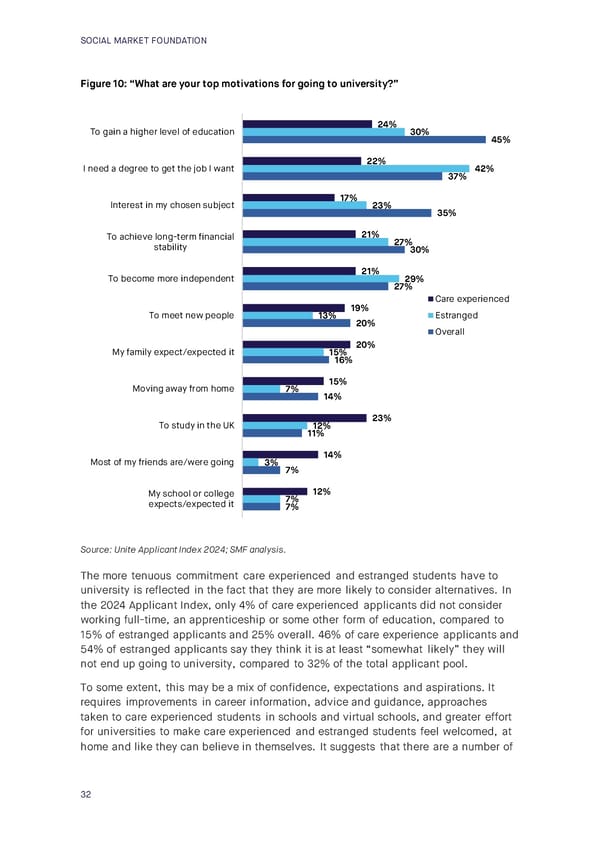SOCIAL MARKET FOUNDATION Figure 10: “What are your top motivations for going to university?” To gain a higher level of education 24% 30% 45% I need a degree to get the job I want 22% 42% 37% Interest in my chosen subject 17% 23% 35% To achieve long-term financial 21% 27% stability 30% To become more independent 21% 29% 27% Care experienced To meet new people 13% 19% Estranged 20% Overall My family expect/expected it 15% 20% 16% Moving away from home 7% 15% 14% To study in the UK 12% 23% 11% Most of my friends are/were going 3% 14% 7% My school or college 7% 12% expects/expected it 7% Source: Unite Applicant Index 2024; SMF analysis. The more tenuous commitment care experienced and estranged students have to university is reflected in the fact that they are more likely to consider alternatives. In the 2024 Applicant Index, only 4% of care experienced applicants did not consider working full-time, an apprenticeship or some other form of education, compared to 15% of estranged applicants and 25% overall. 46% of care experience applicants and 54% of estranged applicants say they think it is at least “somewhat likely” they will not end up going to university, compared to 32% of the total applicant pool. To some extent, this may be a mix of confidence, expectations and aspirations. It requires improvements in career information, advice and guidance, approaches taken to care experienced students in schools and virtual schools, and greater effort for universities to make care experienced and estranged students feel welcomed, at home and like they can believe in themselves. It suggests that there are a number of 32
 Care and Learning in Higher Education Page 32 Page 34
Care and Learning in Higher Education Page 32 Page 34